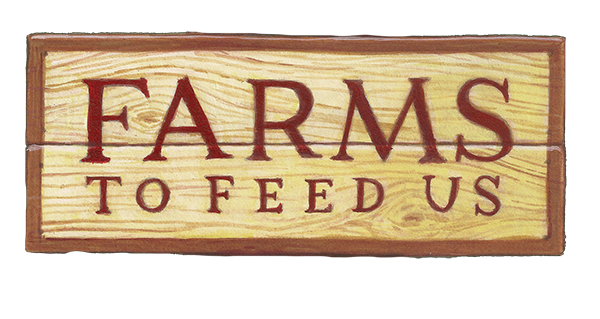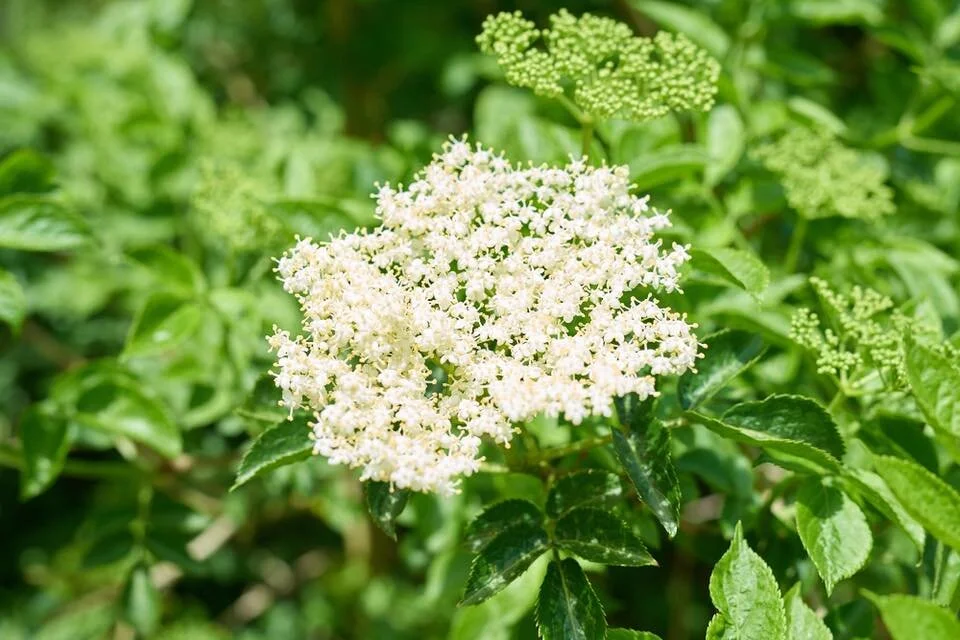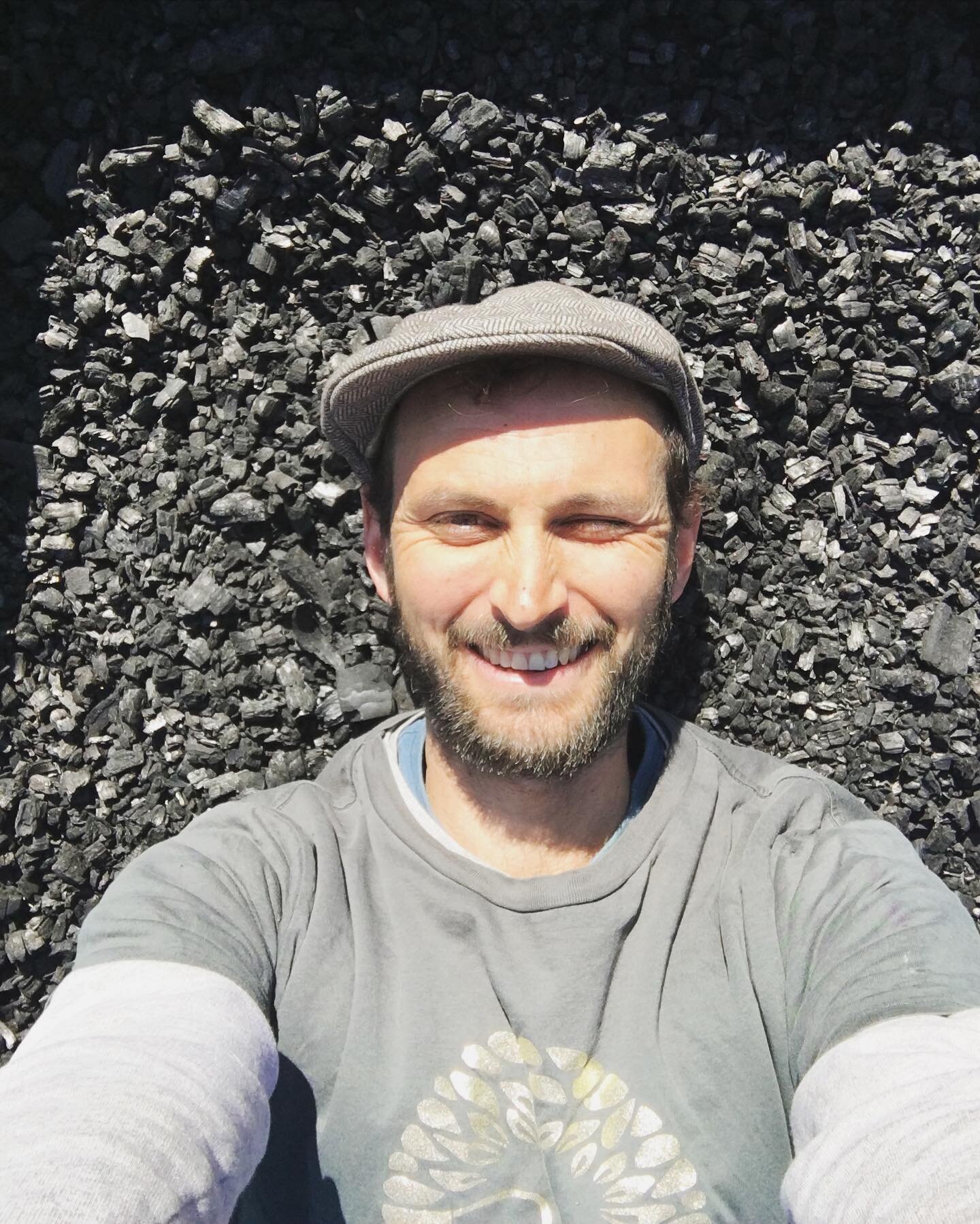Living Drinks for Living Soil: The Story of Old Tree Brewery
On the 2020 International Day of Biodiversity, Tiger Lily tells the the tale of Old Tree Brewery, as told by founder Tom Daniell – part of the Farms To Feed Us community.
The message of this year’s International Day of Biodiversity, on May 22nd, is ‘Our Solutions are in Nature’, as great minds all over the world think of ways to build back better from the COVID-19 crisis that meet the multiple emergencies we’re facing. Now, more than ever, we need to be reminded of ‘hope, solidarity and the importance of working together at all levels to build a future of life in harmony with nature’ [CBD].
This is the way that brewer, composter, and all-round fire starter, Tom Daniell, has been doing business ever since founding Old Tree Brewery in the woodlands of Sussex. Old Tree Brewery’s ‘living drinks for living soil’ provide probiotics to the customer, and now, through Tom’s new enterprise – Compost Club, also delivers them to the earth, by collecting food waste from the community and giving it back as high quality compost.
This ‘closed loop production’ business model is inspired by the ecology of the fermentation process and culture, which Tom shared with us through the story of Old Tree Brewery.
In the beginning, the brewery was begun by Tom and Nick, his friend and co-founder, as a means of funding the woodland project they were working on, where they hosted volunteer days, built a log cabin, cultivated mushroom logs, and learnt about forest gardens. They were amazed by the abundance of ingredients they were finding, such as the likes of tree sap and elderflower, harvested by our ancestors for wine and mead as they went about coppicing the woods in a way that was beneficial to both tree and human, supporting diverse woodland ecosystems.
The idea was to brew drinks from the woods, often abandoned, and use the profits to bring people back to them.
Inspired by Martin Crawford, director of the Agroforestry Research Trust, Tom began absorbing more and more knowledge about forest gardening and developing his ideas for seasonal ingredients, such as berries and herbs, which are too bitter for food, but perfect as infusions for drinks, with great flavours and health properties.
In the brewing process, Tom learnt more and more about microbiology. Several books about history and ecology radically changed his worldview of food and drink culture (7 of which are listed at the end of the story); “Fermentation was the original refrigeration”, and, he explained, led to the growth of the agricultural industries, as more produce could be preserved.
Old Tree Brewery evolved from ‘botanical drinks from edible landscapes’, to living drinks for living soil, as Tom began to focus on the substance at the root of his ingredients; “food and drink is so much more than fuel for our bodies, it’s the connection to land and place”, he advocates that, as consumers, we’ve been inhabiting a transactional world, whereas producers are part of the ecosystem, working in relationship with the environment.
In producing probiotics, the brewery uses what the land has to give, to produce living drinks that feed the life inside us, and then gives back to the land what it needs to carry on living. This is how Old Tree Brewery exists within the ecosystem.
The brewery then gave life to its own ecosystem, a community of people and places where the drinks were made and sold. It started with friends’ parties and events, before other outlets appeared as the business grew with its audience and ingredients. As Tom realised that plants we class as ‘weeds’ and throw out, were the staple of drinks our ancestors, such as nettles, dandelion and burdock, his foraging operation expanded.
The scale upped after a festival invited the brewery to provide the bar, and from which the two remaining barrels were taken to the new zero-waste restaurant opening in Brighton – Silo. Old Tree became a supplier and this gave them the platform to experiment. Earning 40% from the drinks sold, they could afford to get creative and diversify, producing cordials, ciders and beers. All the ingredients were foraged with the exception of malt and a few others, with only the occasional emergency supply of dried herbs needed when best sellers ran low out of season.
Photo by Tula Howarth
The challenge for Old Tree became balancing what people wanted – a level of uniformity and consistency – with the nature of seasonal ingredients and process of fermentation, neither of which conform. They were brewing in the basement below Silo, which was next door to a bakery where they would “catch sourdough yeasts“, and this gave one batch of cider made from sour Bramley apples that “shouldn’t have been nice”, a “ vanilla treacle, toffee apple taste – the best brew we ever had”, but impossible to replicate.
What made Old Tree unique and special was also what made it a hard business to run; making money from only on foraged drinks was impossible as there was either too much or too little at one time. The challenge was to find a scale that worked; small enough and large enough, the aim was to become “the biggest little brewery”.
Tom insists that to stay on “human scale, all the equipment you need should fit through a human-size door.” Any bigger and you become dependent on expensive equipment and tech that alienates people from the production process. Tom dreams of a ‘mycelium-like’ network of forest gardens and nano-brewers creating different botanical infusions that form a devolved, localised industry of living drinks.
The principle of the fermentation revival is that everyone should be able to brew, which is part of the agro-ecology mission to replicate a local model across the world, creating healthy produce, environments and economies: a diverse ecosystem of humans and nature.
Old Tree was then given the opportunity to run a cafe with a forest garden, and it’s here they discovered the best way to flavour kombucha… Juicing citrus fruits for other drinks, they were having to throw out a lot of zest. Meanwhile, they’d bought a still to make spirits from surplus alcohol, with mixed success. They discovered that distilling the citrus peel created ‘essential water’ – hydrosols. This worked a treat for flavouring kombucha because it didn’t add any carbohydrates or protein that would make it ‘go crazy’, but gave it an amazing taste and was a way of giving their ingredients a long shelf life; key to becoming a sustainable business.
In managing the forest garden, Old Tree was developing the foundation for a sharing community of things like herbs, that have needed pruning and can be used to infuse drinks. Kombucha became the product that Old Tree could consistently produce and sell; it was on trend with the health revolution, could be produced ethically and gave a wide enough margin to support a small team as well as reinvestment in the business.
Pre-COVID-19, the brewery made the majority of its profit during the summer through direct sales at events, which kept it going over quieter winter months, like the annual apple festival at Three Pools Farm came from the pressing parties Old Tree used to host in Brighton. They also supplied kombucha, botanical cordials and seasonal wines at wholesale to local cafes and shops, keeping delivery costs low thanks to solar-powered electric bike company, Zedify.
“You can have a much better brighter, smokeless fire and store all of the carbon that the tree spent its whole life working to draw down into its body, its biomass… we leave these huge pile of embers just sat there, oxidising, all that carbon just turning to ash and becoming CO2 in the atmosphere”.
Fermentation is a collaboration with nature and every brew is unique.
As the Old Tree ecosystem grew, compost tumblers turned waste from the brewery and cafe into food for the forest garden, making it cost and energy efficient. This is how Tom came to start creating bio-charcoal, a way of storing and providing nutrients for the soil. Reclaiming waste wood, providing it’s not already been claimed; if so, “let the funghi have it, they have a right to exist too”; he’s been capturing carbon to make ‘Terra Preta’: man-made ‘black soil’ of the sort that can be found in the Amazon basin.
Adding bio-char to soil increases its humus, which gives soil its nutrient density and retains water – as much as ten times its own volume. Storing carbon safely, bio-char helps plants to grown that then draw down more carbon. And anyone can make it. (One of) Tom’s dreams is to build a zero-carbon brewery that produces bio-char from burning the by-product of proper woodland management. For now, he’s using a hot plate and steam juicer to make citrus hydrosols and rhubarb cordial for Old Tree drinks. Ideally, others would also enjoy the heat and light from the fire of “a viable convivial business” in “a place where the outside and the inside can co-exist”.
It all comes full circle with Compost Club; an idea that came before Covid spurred it into action. Instead of food waste being incinerated, as it currently is in Brighton, it can be composted and infused with bio-char, to make Terra Preta. Using the Old Tree compost tumblers from the cafe days, Tom is making the best compost that can possibly be made in an urban situation.
The tumblers are insulated for high temperatures and maximum aeration, which creates the aerobic microorganisms that turn compost into food for plants. He tells me how some hops they were growing were struggling, but after feeding them some of the mulch they’d made, they shot 5-6m into the sky a few months later. Adding bio-char to the compost not only contributes nutrients but also collaborates in the composting process by absorbing moisture from food waste.
The idea of Compost Club is not only the result of Tom’s journey with fermentation and ecology, that pre-existed the Covid-19 crisis but also a response to it. A means to keep his business afloat whilst drink sales are down, it’s also what he feels is needed for many reasons that the crisis brings to light, whilst the conditions created made it seem sensible to invest energy into an enterprise that gives people what they need and now have time for; to grow plants for physical and mental health. Getting people to value real, quality compost, now seems an easier, more relevant mission.
“The plastic compost, 3 for a tenner at the garden centre, is the coca cola of the compost world. Real compost is humus, it’s the product of loads of micro-organisms working together. Just like kombucha is the product of a diverse colony of microorganisms”.
- Tom Daniell
Rather than giving food waste to a company contracted to collect it for incineration, then paying for manufactured compost that contributes to the destruction of natural ecosystems and wildlife, through the mining of marshlands and peat bogs, Tom is on a mission to defend the soil we depend on for our survival, by disrupting the cycle and creating a new one. There may also be potential for long-term returns from Compost Club, but whilst investing a huge amount of time and energy in its early development during the crisis, he isn’t banking on it.
Meanwhile, as Tom lights a fire under the current compost convention, Old Tree is still brewing and just about surviving from direct sales through their online shop, as well as the ‘Support Local Fermented Foods Box’, launched in collaboration with other local producers. There are also a few zero-waste food shops in Brighton and Hove open and selling Old Tree drinks; Harriet’s of Hove, Store Brighton, Hisbe and Florence Road Market.
Hopefully, the recent surge and reinforcement of support from communities towards local business during the crisis, will continue and keep the drinks flowing from Old Tree Brewery. At the same time, in true fermentation style, a new life has been born; another part of the ecosystem that gives us a biodiverse culture, and the next chapter in the Old Tree story. For here is an example of solutions that can be found in nature to support people through the Covid-19 crisis, and help us build back better locally to meet the multiple emergencies we are facing globally.
Old Tree Brewery reading list:
The Art of Fermentation by Sandor Katz
The Hidden Half of Nature by Montgomery Bickle
Creating a Forest Garden by Martin Crawford
Plants for a Future by Ken Fern
Small is Beautiful by Schumacher
Hedgerow Medicine by Julie Brutton Seal
The Hidden Life of Trees by Peter Wohlleben





